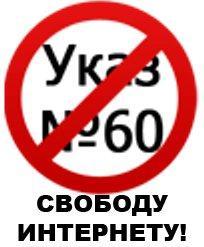 Belarusian ambassador Dr Alyaksei Mazhukhou answered questions about the state of freedom of expression in “Europe’s last dictatorship” in front of an eclectic gathering outside the London embassy.
Belarusian ambassador Dr Alyaksei Mazhukhou answered questions about the state of freedom of expression in “Europe’s last dictatorship” in front of an eclectic gathering outside the London embassy.
The unusual sight of a senior diplomat actually engaging with protesters came as a big surprise to those gathered outside the embassy to highlight recent measures taken by the Belarusian regime to increase censorship.
“A step in the wrong direction”
President Aleksandr Lukashenko’s government tightened its already strong grip on the country’s internet traffic in a presidential decree No. 60 that went into force on 1 July. The EU called the decree “a step in the wrong direction”.
Sir Tom Stoppard (picture in right top corner), the esteemed playwright and respected freedom of expression campaigner, asked whether the ambassador fully appreciated the impact the government’s actions have on everyday Belarusians and their ability to express themselves freely and to receive impartial information.
Questions to ambassador
The Observer’s Henry Porter questioned Mazhu khou about his government’s prosecution of individuals found guilty of making derogatory remarks about President Lukashenko. A number of journalists have been charged by the Belarusian state for slanderous comments in recent months.
khou about his government’s prosecution of individuals found guilty of making derogatory remarks about President Lukashenko. A number of journalists have been charged by the Belarusian state for slanderous comments in recent months.
The ambassador spoke in Belarusian to his colleague to clarify Porter’s question with regard to the definition of insult. One protester suggested afterwards that the diplomat was using language as a shield despite his distinctly sophisticated grasp of the English language.
Porter requested whether a team of journalists, artists, campaigners and interested parties could visit Belarus to prove how expression is censored by the government in Minsk.
The ambassador ended the ad-hoc discussion by inviting all in attendance to visit Belarus to fully understand the complexities of the government’s policies and how they relate to society.
No signs of transparent elections
The Belarusian national presidential elections are due to be held in 2011, although rumours suggest that the date could be brought forward to September. Observers  suggest that the elections will be overshadowed once again by President Lukashenko’s protracted omnipotence in Belarus, where strategies reminiscient of Soviet the Russian Federation have been employed to ameliorate his decaying authority in Minsk.
suggest that the elections will be overshadowed once again by President Lukashenko’s protracted omnipotence in Belarus, where strategies reminiscient of Soviet the Russian Federation have been employed to ameliorate his decaying authority in Minsk.
OSCE election observers declared the 2004 election “un-free”. There have been no signs that the next election will be any more transparent or accountable.
New strategy of defense
The appearance of the ambassador defending the Belarusian government’s integrity on the streets of London is clearly part of a deliberate strategy to engage with the international media, giving the impression of mutual co-operation.
In Index on Censorship opinion, it’s clear that the Belarusian establishment hope this will foment a more positive reaction to the upcoming election/re-election of Lukashenko. But the biggest charm offensive in Belarusian political history will be needed to disguise the corrupt reality of Lukashenko’s regime.
Playwright and co-organiser of the protest, Alexandra Wood, read out a Charter 97 press release: “The internet is a vital tool in communication and should be available to all. Lukashenko’s law imposing censorship on the internet particularly affects those in Belarus who oppose his regime, who want to offer the Belarusian people an alternative, which is of course, his intention.”
Letter by protesters
At the end of the demonstration, a letter signed by a number of distinguished artists including Mark Ravenhill, Howard Brenton, Alan Rickman, Laura Wade, Caryl Churchill, Henry Goodman, Henry Porter, Simon McBurney, Simon Stephens and Lyndsey Turner handed the ambassador, calling for an end to the curtailment of freedom of expression in Belarus.
Samuel West (picture on the right) also performed a rousing extract from Generation Jeans, a play from the multi-award winning Belarus Free Theatre.
The letter read: “We urge you to allow the people of Belarus the right to express and share their opinions freely, whether this is on the internet or not. We urge you to use your powers to prevent any further repression of citizens who hold alternative, and oppositional, beliefs to you. We urge that the practice of physical abuse and intimidation against any citizen, including those who dare to hold alternative and oppositional points of view, be stopped. Finally, we urge you to protect the right to freedom of assembly in accordance with Article 21 of the International Covenant of Civil and Political Rights to which Belarus is a state party.”
The protest was in support of the Belarus Free Theatre and was organised in conjunction with the Global Artistic Campaign in Solidarity with Belarus, founded by playwright Sir Tom Stoppard.
HRH London, based on Index on Censorship and Charter 97 information. Read original articles here and here.
Related links:
Belarus follows China in curbing freedom of information on the internet
In Belarus, even one independent newspaper for a region is one too many


